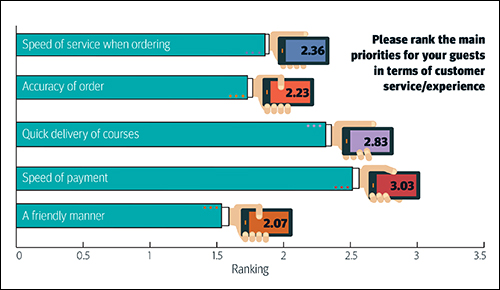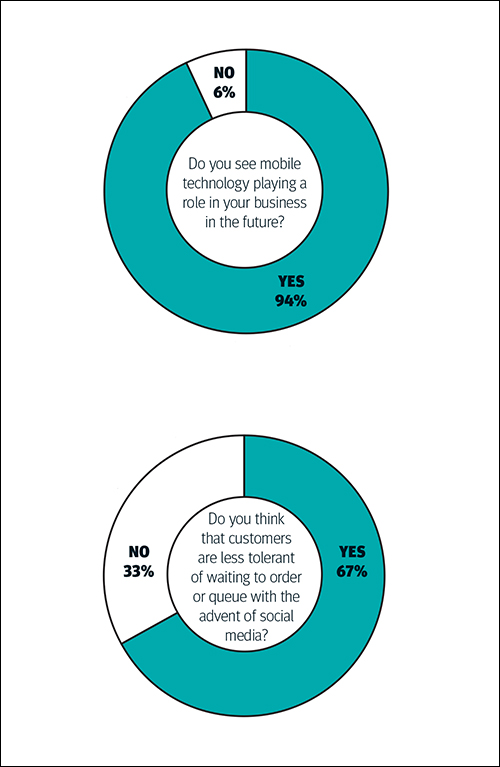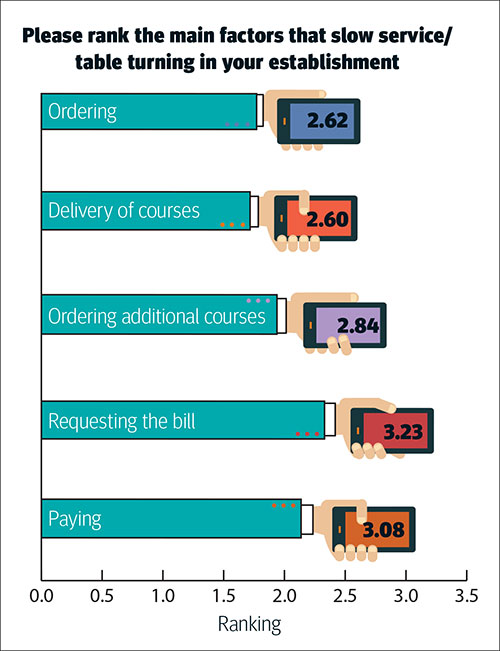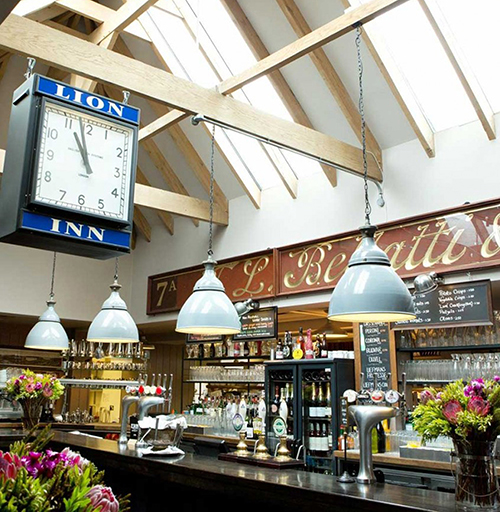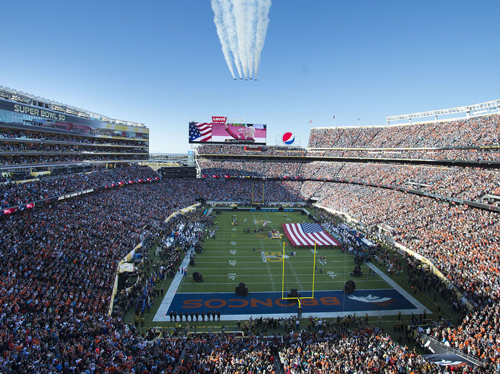Moving to mobile ordering
We are glued to our phones. We don't like queuing. Make guests wait too long, and they damn your service on TripAdvisor. So why isn't mobile ordering and payment mainstream? Is it time to ring the changes, asks Brendan Coyne
The Caterer in partnership with mobile ordering and payment firm Wi-Q suggests that change may be coming.
Around 20% of 159 operators surveyed - from small independents to large groups - already use an app as a customer engagement tool. Around 50% plan to use one. More than 90% see mobile becoming more important to their business, while a similar proportion are investing to improve customer experience and speed of service. Those deploying mobile ordering technology, however, remain few.
Fear of failure and of technology headaches are the main barriers. Respondents perceive mobile ordering as too complicated and too expensive, and they have doubts as to whether customers would actually use the facility. Also on the cons list was the big worry; whether mobile ordering will integrate into operators' existing back-end systems.
Anyone who has been through a system upgrade or technology roll-out will understand such misgivings. Technical teething issues aside, staff may not warm to change. Spending money on proprietary technology can also backfire.
The integration issue in particular is a valid concern, according to some mobile ordering technology providers, who blame EPoS companies for holding back APIs (application program interfaces) and therefore hobbling market development.
But such negatives must be weighed against positives, such as faster, more accurate service and table turnaround, reduced pressure on wait staff, higher throughput and potentially improved customer satisfaction and loyalty.
Naturally, mobile solutions providers believe the pros far outweigh the cons. Graham Cornhill is founder and chief executive of Wi-Q. Cornhill - who will walk out of a bar rather than brave a big queue - founded the mobile ordering company when he couldn't get poolside service on holiday. He says the survey findings reflect Wi-Q's experience, but he accepts that he may have to wait a little longer before mobile fully penetrates the food and beverage sector.
He points out that most survey respondents are mulling over mobile apps. Given his HTML5-based product requires no app development, Cornhill believes that's a mistake.
"People focus on apps, because that is what they see on their phone," says Cornhill. But he reckons people are unlikely to load multiple ordering and payment apps onto their phone. He thinks a single universal solution is more sensible.
"I walked into a well-known coffee chain a couple of months ago. It had signs everywhere telling people to beat the queue, download the app. Yet there were 10 people in the queue. Nobody was using it. But everywhere has Wi-Fi. That is the first thing people ask for when they come into your bar or coffee shop. If you can hijack the moment they access Wi-Fi and force the menu onto their phone, they will use it," Cornhill claims. "You will have cracked it."
He also thinks chains such as McDonald's are wasting money on touchscreens: "The hardware is already in people's pockets." But Cornhill says that McDonald's is right to recognise that quick-service restaurants are losing "incalculable" amounts of money because people can't be bothered to queue.
He thinks theatres, stadia, and airports are ripe for mobile ordering because they deal with high volumes of customers with limited time. But Cornhill agrees with survey respondents that mobile ordering does not suit fine-dining.
"There's a place for ordering using your own device, and I don't think it sits at the high-end," he says. "If you look at the research, speed of service is clearly the key driver, so for quick-service environments, where things are time-driven, using your own device to order is a solution."
Cornhill claims operators can buy his mobile ordering solution for less than a cup of coffee per day. While cheaper than expected by most of those surveyed by The Caterer, Cornhill believes cultural inertia is a bigger barrier than cost: many who profess an appetite for progress are actually fearful of systemic change, he says.
Cornhill concedes those barriers will remain until the market drives change. "Consumers will ask, 'why haven't you got mobile ordering here?' That is when the market takes off," he says. "But I think we are at least 18 months off that."
Wi-Q is a mobile ordering system that also allows use of any payment system. It can be fully integrated into EPoS systems, but Graham Cornhill, founder and chief executive of Wi-Q, says EPoS operators shun opening APIs for fear of losing business. He thinks that problem will recede, but for now, advises a 'stepping stone' solution, ie, putting a Wi-Fi-enabled printer next to the EPoS system, meaning customers can order and pay via their device. It also facilitates access to other menu information, such as allergen details. This functionality is increasingly important, given mandatory nutritional labelling.
Instant menu access at the Lion Inn
The Lion Inn in Boreham in Essex handles between 400 and 1,000 covers every day. With an open-table policy, diners often wait an hour for a table at busy periods, queuing again to place food and drink orders at the bar. Owner Clive Thompson realised this was illogical.
"Considering our options, we didn't want the user restrictions of an app," says Thompson. "Wi-Q can be accessed instantly via any Wi-Fi-enabled device. It's simple and has wide-ranging benefits - from ease of use, to allergy-specific ordering and, of course, ending the need to queue at the ordering point. We also like that we can add specials and limit restricted order items to the menu."
Thompson claims there has been brilliant feedback. "So if the customers are happy, then we are delighted."
Thompson states the Lion had a 15% uplift in beverage sales within the first month of implementing the system. He also says waiting times are down, customer satisfaction is up and tables are turned around faster.
Who is using mobile ordering?
Marriott Group
Gareth Banner is general manager at St Pancras Renaissance Hotel. He also looks after MI + ME, an upmarket quick-service restaurant on the grand terrace inside the station, where he's trialing mobile ordering with tablets on tables.
"The station is a very transient location. There's that awkward 10 minutes where you have got to catch somebody's eye, they come over with the bill, then the chip and pin machine, then go away again and come back with a receipt. [In that situation] people should be able to vacate the table at will," says Banner. "People's expectations are very different than having afternoon tea in a five-star hotel."
If the trial goes well, parent group Marriott International could roll it out more broadly. Banner says the group is also "having conversations" with the firm behind Wagamama's payment app, which he rates from personal experience.
"A big entity like ours, as much as we would like to work with some exciting upstart, the reality is people like to see it proven," says Banner. "Wagamama has blazed a trail. We are talking to the same people at a corporate level."
The tablet trial has increased speed of service and Banner believes that mobile ordering and payment "will soon be second nature for all of us, so we need to future-proof the way we do business."
- St Pancras Renaissance Hotel
Benito's Hat
Ben Fordham, founder of Benito's Hat, says the Mexican restaurant has experimented with mobile pre-ordering with mixed results.
"We've found that our customers really value seeing our food. There's all the same choice with a mobile pre-ordering, but you don't get to 'eat with your eyes' and make the choices that way," says Fordham.
"We have a facility that enables customers to pre-order, but the take up has not been as big as we had hoped. So improving and implementing a slicker system is on the radar - but not a priority for us at the moment."
Centerplate
Centerplate caters for stadia and major events. The firm has no mobile ordering and payment technology in the UK, stating that "robust" communications infrastructure is harder to fit in older venues. But the US is another story.
"We have been using mobile ordering via tablets and cell phones for years now," says Diana Evans, Centerplate's vice-president of marketing and communications. The outfit operates mobile ordering for pick-up or in-seat delivery at the Levi's Stadium.
"That's all of its 65,000 seats," says Evans, "and it includes food and beverage as well as a limited menu of team merchandise."
Given a choice, about 45% of people pick up with 55% having orders delivered to their seat, says Evans. And the firm is experimenting further.
"At a Miami Dolphins game last season, we worked with Twitter on a test run of a new program that allowed fans to tweet @beerme and we would run them a Budweiser to their seat, and take a credit card or cash for payment."
Evans believes the main barrier is reception and connectivity in a full stadium, and that the second factor is consumer adoption.
"Consumers in the venue need to be aware of the possibility and in a mind-set to use it. That is where integrating food and beverage with other facets of the stadium app - like ticketing and parking and instant replays or exclusive coverage - comes in," she says. "That way it is a seamless part of the experience and they aren't segmenting their mobile interface by function."
Levi's Stadium
Continue reading
You need to be a premium member to view this. Subscribe from just 99p per week.
Already subscribed? Log In



